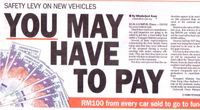 RM100 for every vehicle sold. That is how much car manufacturers and importers are going to be asked to put into a road safety fund under a Transport Ministry proposal.
RM100 for every vehicle sold. That is how much car manufacturers and importers are going to be asked to put into a road safety fund under a Transport Ministry proposal.Vehicle manufacturers and importers said they were peeved that the authorities appear to be moving faster on this proposal than on adding meat to the national automotive plan.
Based on the sales of 400,835 cars last year, this scheme of contributing RM100 per vehicle sold would net the road safety fund a tidy sum of RM40 million. The proposal may also require insurance companies and other organisations to contribute to the fund which would further increase the coffers.
When the proposal comes into force, the money collected will be channelled towards a fund called the "Road Safety Trust". Money from the fund will be used to conduct road safety campaigns, and good news for Lim Kok Wing as he should be one of the beneficiaries.
Universiti Putra Malaysia Engineering Department head Prof Radin Umar Radin Sohadi said contribution schemes had been successfully implemented in developed countries. "In Australia, for instance, there is a body called the Transport Traffic Commission where insurance companies and other firms plough back money to educate motorists on road safety," he said. He said the additional funding had helped the Australian Government to launch several programmes that had significantly helped to reduce accidents and save lives. "For instance, they have structured programmes and equipment to teach schoolchildren road safety and the dangers of reckless driving. Their programmes have been very successful," added Radin.
Wow, Malaysia Boleh again!!!
When the Construction Industry and Development Board (CIDB) was set up to enhance the quality and skills of the construction industry, the same philosophy and ideology was preached. CIDB had collected billions of dollars of levy from contractors (0.25% of contract sum for each contract exceeding $500,000), and $250 from each worker who are required to be registered with CIDB.
However, over the two decades, what had been achieved is that CIDB has become a joint venture partner of some construction entities and are procuring projects in India and Sri Lanka. They are now scoping into Vietnam and Cambodia. But the industry is still plagued by poor quality, poor workmanship, poor safety and health environment and practices and project failures.
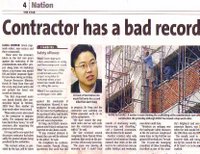
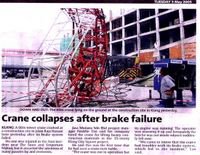

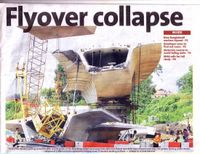

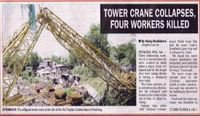


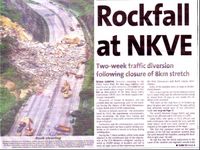


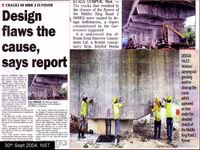
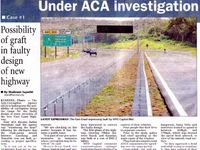







3 comments:
Malaysian administrators are trying very very hard to be sophisticated in collecting taxes and levy such as posted in the subject matter. However, the administrators are still very much 'kampong-minded' and doing things the 'kampong' way.
Just like a China Man company trying very hard to become a Western like corporatised organisation.
The issue here is, how the govt administration spend the money collected from the working-class haunts me. Is the RM100 levy collected from the sales of each vehicle going to support the illing Proton (after being ditched by Volks Wagon)and giving grants to AP holders to import more cars?
Road safety campaign my xxx. Sorry for my language. How could one justify the govt initiative for road safety campaign when one could get the driving license without actually sitting for the test? This may be some isolated case but I guarantee if you are willing to pay the price, somneone from the licensing board could even give you a truck driving license!
I'd like to propose the funds collected from the levy should be spent on the following initiatives instead;
1. Invite Nigerians tourists to flood this country to con Malaysian to buy more street Rolex.
2. Put LAT the cartoonist into the world map to tell the world about the Kampong boy story. This brings realistics joy and laughters as medicine.
3. give incentives for TAXI and Bus drivers!!!!!!!!!!!
4. Pay gangsters to wack bus drivers and the passangers who do not stop and wait at the bus stops.
5. Give incentives to the fishermen to upgrade their skuggish 25 horse power engine to 200 HP HONDA
engine so that they could smuggle more diesel than cathing the fish. Don't blame the shortage of fish due to environmental pollution.
Thanks for sharing. i really appreciate it that you shared with us such a informative post
Post a Comment